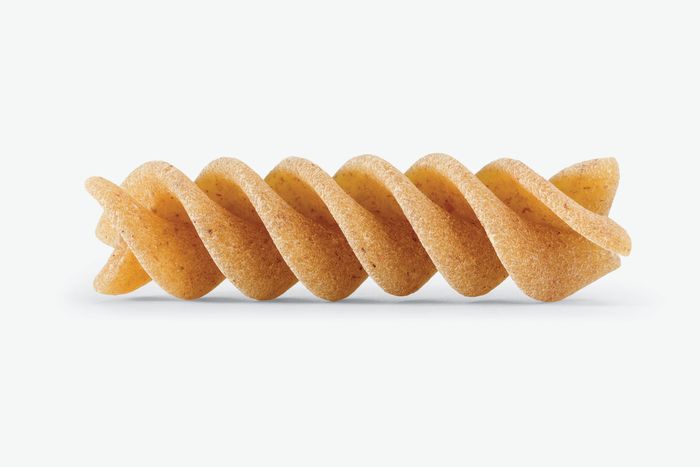
Patagonia Provisions’ new fusilli has everything a climate scientist could ask for in a corkscrew-shaped pasta: local and sustainable sourcing. Organic, B Corp, and 1% for the Planet certification. The flour is milled in the Midwest, and, of course, the box it comes in — like the fleece jackets the outdoor-gear juggernaut is famous for — is made from 100 percent recyclable material. What really sets the stuff apart from Ronzoni, though, is that it’s the first commercial pasta that incorporates Kernza, a domesticated variety of perennial wild wheatgrass developed in the 1970s by plant breeders at the Land Institute in Salina, Kansas. (The trademarked term combines “kern” from kernel with “za” from Konza, an alternative spelling for the Native American people after whom Kansas is named.) Commonly consumed flour is milled from annual grains that are sown each year, requiring tilling that disrupts the soil and releases carbon. Perennials like Kernza, however, stay put and stick around. The plant’s deep root system (typically 12 feet long versus annual wheat’s four) prevents erosion, draws down carbon, nourishes the soil, and increases water absorption. In other words, it’s a bit of an environment-friendly miracle worker.
But how, you ask, does Kernza fusilli perform in the customary pot of water brought to a roiling boil? Surprisingly well. We ran the little spindles through our own kitchen trials with impressive results. The short lunch-bag-brown pasta had a wheaty aroma and good nutty whole-grain flavor, and thanks to bronze-die extrusion and a coarse and porous surface, it ranks high on the sauce-gripping scale. Texture-wise, it emerged from the pot nicely al dente in about nine minutes. It even withstood the rigors of being baked with mozzarella, Pecorino, and a boatload of butter in a gratin alla Sorrentina. And yet, with a higher percentage of durum semolina in the mix (the exact ratio is proprietary), Kernza must settle for second billing on the list of ingredients in this latest in a line of Patagonia perennial-grain products that includes three types of beer. Still, food-wise, you’ve got to start somewhere, so why not with the primi course?











